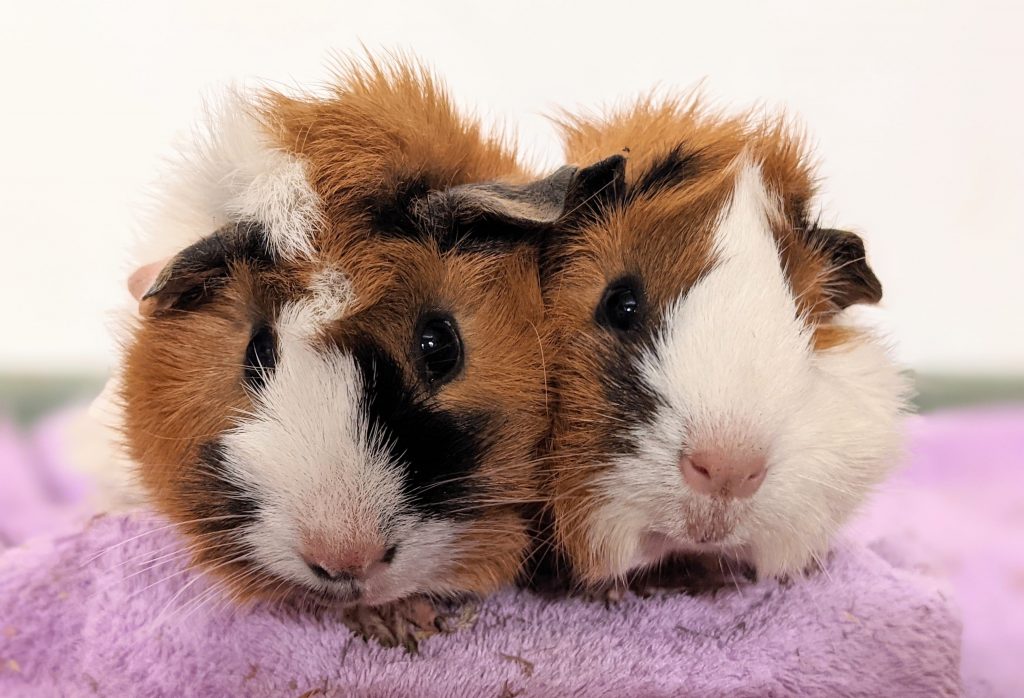Guinea pigs
21st June 2021
Jane Evans is Vice Chair of The Welland Valley Cavy Club and offers her advice around keeping these adorable, sociable rodents as pets

Words: Amander Meade
Jane has been keeping guinea pigs (also known as cavies from their Latin name Cavia porcellus) on and off for the last 30 years and restarted showing them about seven years ago. Around the same time, she began a small, self-funded rescue centre – Iggle Piggle – which is networked around the country. During that time Jane and her team of volunteers have taken in and rehomed hundreds of guinea pigs and currently have over 150 in their care. ‘I would always advise anyone seeking guinea pigs as pets to contact a rescue centre or to buy from a responsible breeder. Guinea pigs make fantastic pets, ideally for older children or adults, as they can be nervous, fast and anti-social – especially when scared. If a family with younger children decides to keep guinea pigs, then the care and responsibilities should always be with the adults.’
The practicalities
Typically, guinea pigs live for five or six years, but they often live longer, and there are a number of golden rules to consider in ensuring they are happy and healthy. ‘In terms of numbers, we recommend people to have only what they can comfortably afford or have space for. These animals should not be kept alone, and recommended pairings are: a pair of bonded boars; sows and a neutered boar; or just sows, who are as happy in a pair as they are in larger groups. Cages should be a minimum of 120cm long per guinea pig, but ideally they like more space. As with any caged animal, be prepared for mess and to keep them clean. Do plenty of research into their diet, as they can be quite high maintenance. Although hay is 80% of their diet, they don’t produce Vitamin C, so this needs to be supplied via fresh vegetables or the ability to forage.’
There are a number of misconceptions around the care of guinea pigs, including the idea that they can only be kept indoors. According to Jane, they can live in or out when in a nice sheltered area that’s protected from the sun in summer and from severe cold in the winter. ‘People often think that two boars always fight, which is not the case either. A well-bonded pair of boars makes a great team… It’s not a good idea, however, to keep rabbits and guinea pigs together. Rabbits can bully guinea pigs or pass on the bacteria Bordetella, which causes respiratory problems.’
Joining a club
Jane highly recommends owners joining a cavy club or even popping to a local show where you will learn so much about guinea pigs, gaining knowledge from people with experience – especially if you fall in love with the hobby. ‘The knowledge and free advice you’ll receive from “fanciers” is priceless and joining in the shows is great fun and will mean your guinea pigs become more than just a pet in the garden. Cavy fans and members of the Welland Valley Cavy Club can keep up to date with all our news through our social media page. Dates and details of all the shows are posted there, as well as in ‘Cavies’ – a magazine produced by the National Cavy Club. Usually, we hold four shows a year locally; these are really relaxed and enjoyable, and we are working on plans for later in 2021, so watch this space.’
For more information on sourcing or keeping guinea pigs or on joining the Welland Valley Cavy Club, see their Facebook page ‘The Official Welland Valley Cavy Club’ or contact the club founder, Ray Woolston on 01536 762295. For more information on Jane’s rescue centre, search for Iggle Piggle Guinea Pigs Advice and Support on Facebook.



